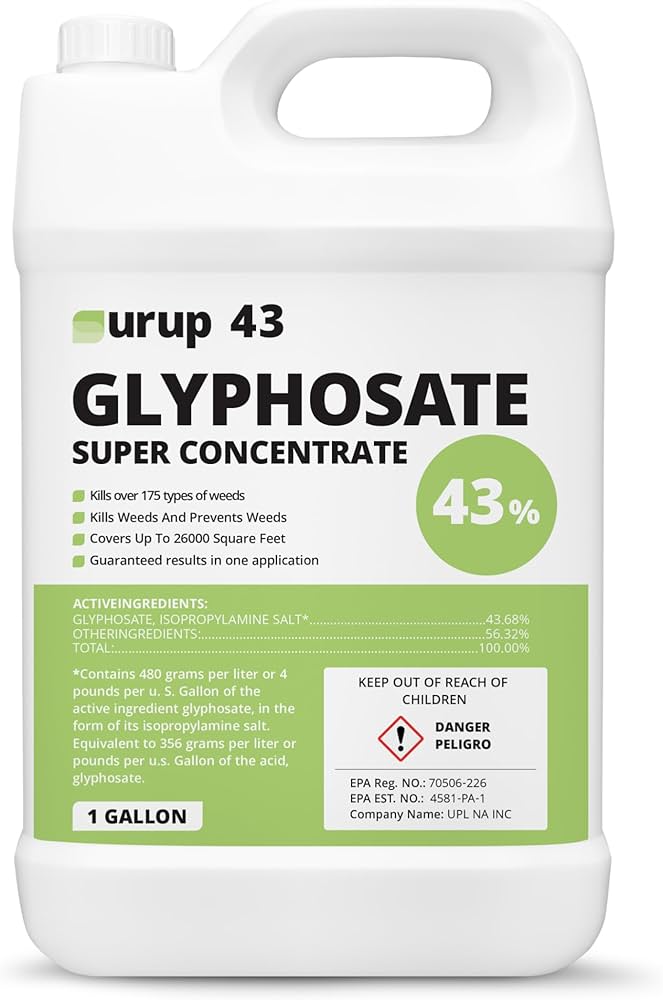
‘Evil Twin of GMOs’: Nigerian Expert Sounds Alarm on Glyphosate Herbicide Use in Rural Farming

Segun Adebayo, Director of Operations at the Centre for Food Safety and Agricultural Research (CESFAR), has urged Nigerian authorities to urgently reassess the use of glyphosate-based herbicides in the country, especially in connection with genetically modified crops like TELA Maize. His warning comes amid growing global scrutiny of glyphosate – the active ingredient in Monsanto’s Roundup weedkiller- which is widely used in agriculture.
In a post shared on X (formerly Twitter), Adebayo referred to glyphosate as the evil twin of all GMO products from Monsanto.
We went to a most remote farming settlement in Nigeria, and Glyphosate has taken over the whole place, he wrote.
He added that a forthcoming documentary, produced with a Nigerian media house, will expose the scale of glyphosate use in rural areas and its potential health risks.
Adebayo also criticised the National Agency for Food and Drug Administration and Control (NAFDAC) for regulatory oversight. This is particularly because the chemical is linked to cancer, hormonal imbalance, and tumours.
His remarks follow a major legal ruling in the United States. A jury in Georgia awarded over $2 billion in damages to a man, John McKivison, who developed non-Hodgkin’s lymphoma after years of using Roundup on his property. The court found Bayer, now the owner of Monsanto, liable for failing to warn consumers and for selling a defectively designed product. The award includes $65 million in compensatory damages and $2 billion in punitive damages.
The case also follows other high-profile lawsuits, including a $332 million award in California to Mike Dennis, a land surveyor who developed cancer after decades of Roundup use.
The controversy surrounding glyphosate dates back to its introduction by Monsanto in 1974. Roundup came under global scrutiny after the World Health Organization’s International Agency for Research on Cancer (IARC) classified glyphosate as a “probable human carcinogen” in 2015.
According to Roundup cancer attorney Brent Wisner, Bayer–Monsanto was aware of cancer risks as early as the 1980s, with internal animal trials allegedly showing links to multiple forms of cancer. The company is accused of concealing this fact.
In a statement, the company claims that the verdict “conflicts with decades of scientific evaluations and regulatory approvals around the world” and vowed to appeal.
In Nigeria, there are concerns over Monsanto-linked genetically modified organisms (GMOs), particularly TELA Maize, which is promoted for its drought and pest resistance. Critics, however, warn that it comes with hidden dangers.
TELA maize is MONsanto87460, and MONsanto89034. All the GMOs in Nigeria are owned by Monsanto. Same company who knew they were causing cancer and hid the papers; refusing to declare it.
Same Monsanto is behind Glyphosate ROUNDUP, and it is a MANDATORY ADD-ON with GMOs in Nigeria. No one is saying this part yet, Adebayo said.
Adebayo also called on Nigerian policymakers, researchers, and the media to investigate the country’s increasing dependence on imported GMOs and agrochemicals.
The upcoming documentary is expected to include footage from farming communities in northern Nigeria, offering a closer look at how glyphosate is used and its potential impact on food safety and rural health.
Music Video Review of Rider Shows Kaha and 2Baba in a Familiar Heist Love Story
About The Author
Mayowa Durosinmi
author
M. Durosinmi is a West Africa Weekly investigative reporter covering Politics, Human Rights, Health, and Security in West Africa and the Sahel Region
Related Articles
Tinubu Government Delays Release of Signed Tax Acts to the Public
Four days after President Bola Tinubu announced the signing of four tax...
ByMayowa DurosinmiJune 30, 2025As Tinubu Urges Africa-Caribbean Unity in Saint Lucia, Over 272 Nigerians Killed in June Alone
While Nigerians deal with deadly violence, worsening hunger, and mass flooding, President...
ByWest Africa WeeklyJune 30, 2025You Can’t Tax a Dead Economy: Nigeria Is Suffocating Under Its Own Policies
As Nigeria’s Central Bank clings to its benchmark interest rate of 27.5...
ByWest Africa WeeklyJune 30, 2025“Wike is Not a Blessing to Us, He’s a Disaster” — Workers Protest in Nigeria’s Capital Over Unpaid Wages, Poor Working Conditions
Staff members of the Federal Capital Territory Administration (FCTA) in Abuja barricaded...
ByOluwasegun SanusiJune 30, 2025












Leave a comment